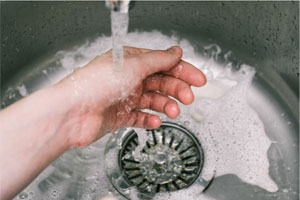Introduction
In the world of education, specifically within child care settings, emergencies can emerge at any moment. Comprehending prompt feedback responsibilities is critical for teachers, caretakers, and moms and dads alike. Not only does it encompass standard emergency treatment expertise, but it likewise entails a collection of methods and skills that should be mastered to guarantee the security of children. From taking care of minor injuries to carrying out an EpiPen throughout an allergic reaction, this extensive overview will look into the myriad duties that feature instant actions in academic environments.
Immediate Reaction Responsibilities: What to Do When Emergencies Arise
The term "immediate action obligations" describes the actions and decisions that need to be taken when an emergency takes place. These situations can vary from minor events like play area mishaps to more serious scenarios including clinical emergencies. The focus below is on fast reactions that can dramatically affect the result for kids involved.
Understanding Emergency Scenarios in Education
Emergency situations can vary widely in nature and intensity. Some typical examples consist of:
- Choking Incidents: Children may unintentionally choke on food or small objects. Allergic Reactions: Circumstances requiring EpiPen administration as a result of extreme allergies. Minor Injuries: Scrapes, cuts, and contusions from play. Medical Emergencies: Asthma strikes or seizures that require prompt attention.
Recognizing Bronchial asthma Signs in Children
Asthma is a prevalent condition amongst children and knowing exactly how to recognize its signs can save lives. Usual indicators consist of:
- Coughing frequently Shortness of breath Wheezing audios when exhaling Chest tightness
Choking Prevention Techniques for Educators
Preventing choking cases ought to be a top priority in academic settings. Here are some efficient methods:
Age-Appropriate Foods: Make sure that food offered is suitable for kids's ages. Supervision During Meals: Constantly monitor kids while they eat. Education on Food Choices: Instruct children about foods that pose choking hazards.EpiPen Management Protocols
When first aid workshops in Salisbury managing allergic reactions, EpiPens can be life-saving devices. Below's exactly how to provide one:
Remove the EpiPen from its case. Hold the EpiPen strongly and get rid of the safety cap. Press the pointer versus the outer upper leg till it clicks. Hold it in place for about 10 secs prior to removing.Managing Minor Wounds Effectively
Injuries are unpreventable when taking care of energetic kids; therefore, comprehending how to handle small wounds is crucial:
Clean the injury with soap and water. Apply an antibacterial solution. Cover with a sterilized bandage.Child Defibrillation Guidance
For severe situations where a child might experience heart attack, recognizing exactly how to utilize an AED (Automated External Defibrillator) is vital:
Turn on the AED and follow voice prompts. Attach pads as shown on the device. Ensure nobody is touching the youngster before delivering a shock if recommended by the AED.Building Educator Confidence Through Training
Educators play an essential function in emergency reaction circumstances; thus it's important they feel great in their capabilities:
HLTAID012 Accreditation Australia Overview
The HLTAID012 accreditation furnishes educators with essential emergency treatment CPR Courses Salisbury skills customized specifically for educational environments:
- Duration of training generally extends over several hours consisting of both written and useful components. It covers topics such as mouth-to-mouth resuscitation techniques, handling injuries, and occurrence coverage protocols.
Written vs Practical Elements of Emergency Treatment Training
Training programs like HLTAID012 make up both academic understanding and hands-on practice:
|Part|Description|| --------------------|--------------------------------------------------|| Written|Comprehending protocols, legislations, and procedures|| Practical|Hands-on method utilizing mannequins or simulation|
Renewal Timelines for Emergency treatment Certifications
Staying updated with emergency treatment certifications is vital for educators:
- Most certifications call for revival every three years. Regular updates maintain instructors knowledgeable regarding brand-new practices or modifications in protocols.
Childcare Centre First Aid Kit Essentials
A well-stocked emergency treatment kit is vital in any type of childcare centre setup:
Essential Items Include:
Band-aids of numerous sizes Antiseptic wipes Gauze pads Adhesive tape Disposable gloves ScissorsFirst Help Basics for Parents
Parents must likewise be outfitted with vital first aid knowledge:

Childcare Safety Dangers Assessment
Regular evaluations help recognize prospective threats within child care settings-- some common dangers include:

Regularly examining these risks makes sure safety standards are constantly maintained.
FAQs About Immediate Reaction Responsibilities
1) What need to I do if a child chokes?
- Administer back strikes adhered to by stomach thrusts if they can not breathe or speak.
2) Just how often ought to I restore my HLTAID012 certification?
- Every 3 years as per Australian regulations.
3) What things are necessary for a childcare emergency treatment kit?
- Band-aids, bactericides, gauze pads, scissors, non reusable handwear covers must all be included.
4) Just how can I prevent play area mishaps?

- Conduct routine examinations of play ground equipment and monitor children during play actively.
5) What are asthma activity plans?
- An individualized strategy created with doctor describing steps to take during a bronchial asthma attack.
6) Exactly how do I recognize indicators of sensitive reactions?
- Look out for hives, swelling around the face or mouth, trouble breathing or wheezing sounds; act quickly!
Conclusion
Immediate response duties are not just jobs; they embody a dedication to safeguarding kids's health and wellness and wellness within academic atmospheres. By understanding procedures related to choking avoidance, EpiPen management, minor wound management, and extra-- educators can successfully react when emergency situations arise while with confidence constructing trust fund among moms and dads and stakeholders alike.
By staying informed with qualifications like HLTAID012 provide first aid in education programs and maintaining first aid sets stocked-- everybody plays a part in producing protected discovering settings for growth and exploration while ensuring every child's safety and security continues to be paramount!